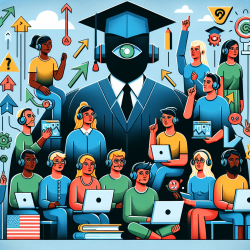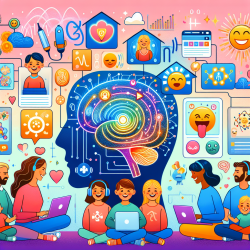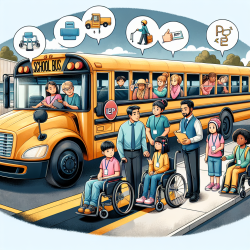In the evolving landscape of education, the integration of technology has become a cornerstone in delivering specialized services to students with diverse needs. One such advancement is the provision of online therapy services, a solution that has proven to be both effective and efficient. TinyEYE, a pioneer in this field, is committed to enhancing student outcomes through its innovative online therapy platform.
Government health regulators play a crucial role in shaping policies and ensuring the quality of these services. This blog aims to provide a comprehensive overview of online therapy, its benefits, and its impact on students' Individualized Education Programs (IEPs).
The Evolution of Online Therapy
Online therapy, also known as teletherapy, leverages digital platforms to deliver therapeutic services remotely. This method has gained significant traction, especially in the wake of the COVID-19 pandemic, which necessitated a shift to remote learning and services. However, the benefits of online therapy extend far beyond the constraints of a global health crisis.
Key Benefits of Online Therapy
- Accessibility: Online therapy breaks down geographical barriers, providing access to specialized services for students in remote or underserved areas.
- Convenience: Sessions can be scheduled flexibly, accommodating the busy schedules of students, parents, and educators.
- Cost-Effectiveness: Reducing the need for travel and physical infrastructure can result in significant cost savings for schools and districts.
- Consistency: Continuity of care is maintained, as students can receive uninterrupted services even if they move or if in-person sessions are not feasible.
Impact on Individualized Education Programs (IEPs)
IEPs are tailored plans designed to meet the unique educational needs of students with disabilities. Online therapy can play a pivotal role in fulfilling the objectives outlined in these plans. Here’s how:
- Customized Interventions: Therapists can design and implement interventions that are specifically tailored to the student's needs, leveraging digital tools and resources.
- Progress Monitoring: Online platforms often come with built-in tracking and reporting features, allowing for real-time monitoring of student progress and adjustments to the IEP as needed.
- Parental Involvement: Parents can more easily participate in therapy sessions, gaining insights into their child's progress and how they can support their development at home.
Regulatory Considerations
As government health regulators, it is imperative to understand the regulatory landscape surrounding online therapy. Ensuring compliance with state and federal laws, such as the Individuals with Disabilities Education Act (IDEA), is crucial. Here are some key considerations:
- Licensure: Therapists must be licensed in the state where the student resides. This can pose challenges but is essential for maintaining the quality and legality of services.
- Data Privacy: Online therapy platforms must comply with regulations such as the Health Insurance Portability and Accountability Act (HIPAA) to protect student data and privacy.
- Quality Assurance: Regular audits and evaluations should be conducted to ensure that online therapy services meet established standards of care and efficacy.
Future Directions
The future of online therapy is promising, with continuous advancements in technology enhancing the delivery and effectiveness of services. Here are some trends to watch:
- Artificial Intelligence (AI): AI-driven tools can assist therapists in creating more personalized and adaptive interventions.
- Virtual Reality (VR): VR can provide immersive therapeutic experiences, particularly beneficial for students with sensory processing disorders.
- Increased Collaboration: Online platforms can facilitate greater collaboration between therapists, educators, and families, fostering a more holistic approach to student development.
Conclusion
Online therapy represents a significant advancement in the field of special education, offering numerous benefits that align with the goals of IEPs. As government health regulators, understanding the intricacies of these services is essential for ensuring their efficacy and compliance. TinyEYE remains at the forefront of this innovation, dedicated to improving the educational outcomes for students through accessible, effective, and efficient online therapy services.
For more information about our services and how we can support your institution, please visit our website or contact us directly.










